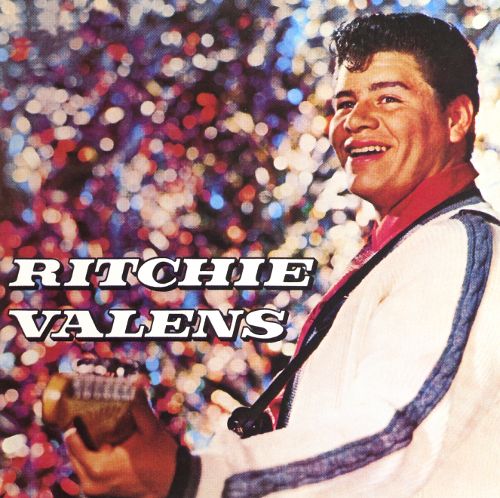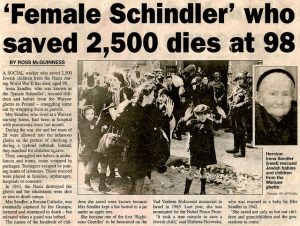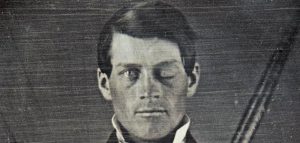It is the late 1950’s in southern California, and a young superstar named Ritchie Valens, whether he knows it or not, is about to change the culture of America forever. In a matter of eight months, the Hispanic student at San Fernando High School just became one of the biggest celebrity musicians of the day.1 After dropping out of school in order to record and tour full time, Richard Valenzuela was making phenomenal Rock N’ Roll music, both on stage and in the studio. While America quickly became obsessed with the undeniably talented teen, nothing could prepare them for his next release.
From the beginning, the odds were against young Richard. He was merely sixteen, and, as a young Latino, there were few opportunities for someone like him in the American mainstream music industry, let alone in Rock ’n Roll. He saw proof of this fact early in his career, facing prejudice and discrimination at every turn. He was even forced to change his name to Ritchie Valens in order to make it easier for his fans to pronounce—a compromise that gave way to controversy and anger from his family.2 Ritchie realized that, even though he was opposed to the changing of his name, it would be a smart move for him as a musician. But even after his family name was taken from him, he refused to let go of his heritage. In fact, it seemed that he tightened his grip.
Ritchie wanted to do something to pay tribute to his Latino culture. With the assistance of Bob Keane of Del-Fi Records, he decided he would combine the two worlds that he was now so heavily a part of, by turning the Spanish tune “La Bamba” into an upbeat rock song. Only knowing English, Ritchie had to learn the lyrics of the traditional Mexican folk song phonetically. After countless takes in the studio, he recorded the song on a two-track record with a second soon-to-be hit Oh, Donna.3
Ritchie released the track and promptly shook up America. Most people had no idea what the song was about, but, for one of the first times in modern music history, they didn’t care. The charismatic rhythm of the song combined with Ritchie’s unique voice; it was impossible to dislike it, and the song spread like wildfire, taking his career to new heights.
Seeing Ritchie perform was a spectacle only few Americans were graced with. His energy and impeccable guitar skills would engage the thousands of audience members from start to finish.4 While the crowd was swooning over every single song, there was nothing like that epic guitar riff that carries the tune of La Bamba.3 As soon as Ritchie’s guitar pick hit his strings, the fans simply could not contain themselves.

Unfortunately, Richard Valenzuela’s career was ended even quicker than it begun. Soon after his explosive rise to fame was sparked, and before he could finish his tour, Ritchie Valens was killed in a plane crash along with fellow artists Buddy Holly and The Big Bopper J.P. Richardson.6 The tragedy triggered nation-wide shock, and the day became known by many as “The Day The Music Died.”7
Although his life was ended much too early, perhaps it was this terrible fate that immortalized him in music history. His music and the rest of Valens’ amazing life inspired the film La Bamba, a timeless and classic film. Ritchie’s brave move in the release of “La bamba” inspired and enabled many other Hispanic artists to begin to make their way into the spotlight, making it much more than just a great song. We see the repercussions still today, through modern Latin Rock bands and all the sub-genres surrounding them, and will without a doubt continue to experience the fruits of the song for decades to come. Needless to say, American music and culture would not be the same without Richard Valenzuela’s audacious contributions.
- Encyclopedia of World Biography, 2004, s.v. “Ritchie Valens.” ↵
- Salem Press Biographical Encyclopedia, January 2017, s.v. “Ritchie Valens,” by Scot M. Guenter. ↵
- “‘La Bamba’ one of the 100 most important American musical works of the 20th century,” Broadcast Transcript. Weekend All Things Considered, NPR, July 15, 2000. ↵
- St. James Encyclopedia of Popular Culture, 2nd ed. “Valens, Ritchie (1941–1959),” Candida Taylor. ↵
- “‘La Bamba’ one of the 100 most important American musical works of the 20th century,” Broadcast Transcript. Weekend All Things Considered, NPR, July 15, 2000. ↵
- Robert Wright, “The Day The Music Died,” Aviation Safety, July 1, 2015. ↵
- “What Went Wrong On The Day Music Died?” Interview by Robert Siegel, Melissa Block, All Things Considered, NPR, February 3, 2009. ↵



163 comments
Jacqueline Mendez
My grandma would always play this song every morning on Saturdays to wake us all up. I have a very soft spot for this song and will dance to it anytime! My mother would tell me the story of the famous Ritchie Valens, but only because she loved the movie. I never had the chance to watch the movie but my mom told me a lot about it so I guess you can say I’ve watched it before. This article gave me more on inside look to this man’s career that could have gone farther if it weren’t for the crash and his tragic end.
Juan Arceo
Ritchie Valens is very influential in the Latin community even with unfortunately being taken away from us too soon. Till this day I still listen to his music, especially “La Bamba” and “Oh, Donna” as I relate to their message. I remember being fascinated by the movie and it is one of my favorite movies of all time. The fact that Ritchie Valens started off so young is what is heartbreaking because his career was just starting and now we can only dream and try to envision where his career could have gone.
Nicole Ortiz
I remember hearing this song growing up since my parents would always play it and it was always one of my favorite songs to listen to because of how catchy and upbeat it is. The only reason why I even knew that Ritchie passed away was because I watched the “La Bamba” movie and was surprised because i thought he was still alive. It was sad to learn that he had to change his own name to even try and please others during the take-off of his career just because they couldn’t pronounce it. What i am happy about though was the fact that although he had to change his name, he never forgot where his roots were and where he came from and instead embraced it and wanted to highlight it through his music. Richard Valenzuela was such an unforgettable artist that will forever be known for “La Bamba”.
Kimberly Parker
I can remember my parents playing La Bamba in the background as my brother and I played in the backyard. I remember always loving the song, but never knowing who the singer was or anything about him. Reading this article was really interesting, and I’m shocked that the singer had to change his name, just to gain more recognition. It’s sad to think that the had to do this to be accepted by society back then and that things like this still happen as well.
Ashley Martinez
La Bamba is such a fun and catchy song that can get everyone singing and dancing along. Ritchie Valens was a young Hispanic that through his music was able to represent Hispanics and their culture through music. Valens experienced discrimination through out his career. Ritchie Valens was taken here on Earth far too soon after he died in a plane crash. He impacted many lives with the form of music. Still to this day La Bamba is a popular song that all cultures enjoy hearing.
Michael Lazcano
Richie seems to be a once in a lifetime talent that was taken away from the world much too soon. He not only made a catchy and groovy song that makes you stand up and dance, or try and sing the lyrics without knowing them, but he inspired the latino community to move into the mainstream culture. I think without his influence artists such as Juanes, Prince Royce, or Elvis Crespo wouldn’t be as popular as they were today, maybe they wouldn’t be in the music scene today without the success of Richie. Even though the American society at the time made him change his name, he did not give up what was important to him, and what made Richie, well Richie. If he hadn’t have gotten on that plane I believe that he would’ve continued to spread the Latino culture further into the hearts of Americans, but that’s just what I think.
Rahni Hingoranee
La Bamba is one of my favorite songs and has been since I first heard it. I hardly knew the name of the singer of the song so it was nice to learn about his history. He is another great talent who left this earth way too soon. The story of his humble beginnings to creating a song that is immensely popular is inspiring.
Cristianna Tovar
This article gives lots of great background information about Ritchie Valens’ life that I wasn’t aware of before reading it. The movie La Bamba is my father’s all-time favorite movie, and we watch it together any chance we get. This song brings back so many childhood memories and is nostalgic for me. Although Ritchie is no longer here with us, his music lives on forever, and it makes anyone who listens to it feel like dancing.
Bruno Lezama
I really like this song! The first time that I heard “La Bamba” was when my grandfather put it in the radio. I didn’t know about the life of the author of this song. For example, I didn’t know that Richard Valenzuela change his name to Ritchie Valens in order to make it easier for his fans to pronounce. I find this really hard to do because it is like forget your family in order to become a famous artist. Also, I didn’t know about “The Day the Music Died” which was the day when Richard pass away. A very bad fact.
Jose Chaman
I loved this article! As a Latin American I have heard this song thousands of times either at parties or on the radio, but I never had the curiosity to know the background of the song or the artist. It’s sad to know that he had to change his name to gain more recognition. This makes me think about how society (even in music) has marked patterns of rejection towards “external” factors, but thanks to globalization, today the level of social exclusion is being reduced (although there are still places where it is usual). However, Richard Valenzuela took a big step not only by launching a successful hit but by demonstrating that we all have talent and opportunities no matter where we came from. It is a pity that his life had to end that way.